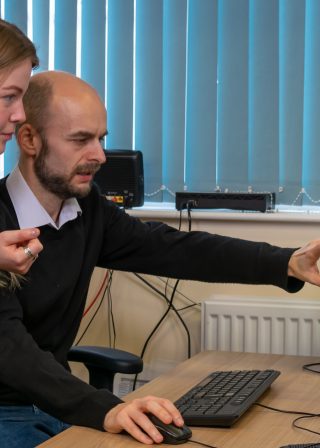About IPS
Individual Placement and Support (IPS) is a form of Employment Support designed to help people overcome barriers such as their mental health or substance misuse issues to find or maintain employment.
Working Well Trust IPS Employment services provide support for people with mental health issues. Working in collaboration with the NHS to support people on their employment journey. Many of our Employment Specialists work out of NHS Trusts to ensure a strong working relationship to better benefit our clients.
Unlike other employment support programmes which too often focus on training participants before placing them into work. IPS is based on the ethos that the best way to learn and adapt to working in a competitive and paid position is to work in one.
It does this by offering support tailored to the person. Through initial meetings our Employment Specialists can help people make informed choices and find the job right for them. IPS also provides ongoing support for the employer and employee when they start working to ensure the person remains employed.


IPS is primarily based on eight main principals:
- Rapid job search – IPS aims to start the job search within four weeks of support, even if the participant has been out of work for a long time.
- Competitive employment – IPS is not meant to support participants into unpaid or protected work, but rather paid and competitive employment.
- Zero exclusion – IPS does not exclude based on diagnosis or severity or barriers. The only inclusion criteria for IPS are that the participant wants to work and faces barriers to working (specifics of what barriers, whether mental health or criminal record for example, are determined by the service in question).
- Client preference – IPS looks for work that aligns with client preference, working to harness their strengths and empower them to move towards sustainable employment they will enjoy.
- Client led employer engagement – Employment specialists engage local employers and form relationships with them based on their clients’ needs, after working with the client to understand what kind of employment they are looking for.
- Clinical integration- IPS aims for high quality clinical integration, meaning that the Employment Specialist works in collaboration with healthcare providers to support the client, promoting employment as an important aspect of recovery, but also facilitating clinicians’ input into supporting the client with employment.
- Ongoing individualised support – IPS support does not end when a client starts work, but rather supports the client in the onboarding process, and as far into their employment journey as necessary while working towards client independence.
- Benefits counselling – IPS Employment Specialists offer a space to discuss benefits and any concerns the client may have about how employment may effect their benefit entitlement. Ideally, IPS services work in collaboration with local DWP officers to support clients.
IPS Working Well- FH’s Story
Finally take a moment to read FH’s story. A truly remarkable example of what happens when the IPS Model is applied and how it can truly make a difference to someone’s life.
When FH came to the service, they had just been left a role due their mental health. It was a difficult time for them as were waiting for a diagnosis. Their Employment Specialist (ES) supported them to talk about the impact this was having and created an In Work Support plan tailored to overcome the difficulties they were facing.
Working together FH found a new role though there were challenges regarding their attendance due to their mental health and a struggle to explain these absences. Their ES reached out to FH’s manager to discuss the issue and with FH’s consent disclosed the mental health challenges explaining FH was extremely passionate about both the role and colleagues.
The ES was invited to the probation meeting where FH received full marks for every other aspect except for attendance. The ES and FH, explained the situation, put in place measures to support FH in the role and an extension of probation was awarded. Since then, FH has been able to communicate attendance issues appropriately, overcoming barriers and has been in almost full attendance passing his probation.
FH is now feeling very positive about the future. Deciding to return to university on top of working. FH reported they’ve gained so much more confidence in their capabilities and have been able to overcome their communication barriers and has a desire to sustain this role long term.
“Before this service I couldn’t hold down a job, I struggled to find one and got mistreated in the workplace. But the second I started working with my advisor I instantly found a job and felt more comfortable being there during the recruitment process and during my shifts, all due to what was provided e.g. constant weekly meetings, pre interview prep and the thorough understanding and optional disclosure. Which all is being handled by the most understanding and friendliest staff I have seen and dealt with. They have nothing but your best interest at heart, very hands on and will not leave your side the second you get employed. It’s a forever service.”
